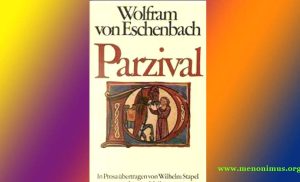Parzival | Wolfram von Eschenbach | A Review
Parzival Wolfram von Eschenbach A Review
Parzival by Wolfram von Eschenbach-A Review
Introduction:
‘Parzival,’ written by the medieval poet Wolfram von Eschenbach, stands as a timeless masterpiece within the realm of medieval literature. Composed in the early 13th century, this epic poem brings together elements of chivalry, courtly love, religious allegory, and adventure, encapsulating the essence of medieval ideals while offering readers a rich tapestry of characters and emotions.
Plot Summary:
The narrative follows the life of Parzival (Percival), a young and naive knight who embarks on a quest to become a Grail Knight. Parzival’s journey is marked by encounters with various knights, nobles, and mystical beings, as he learns the values of chivalry, love, humility, and spirituality. The plot unfolds across five books, each delving into different aspects of Parzival’s growth and the challenges he faces.
Themes and Motifs:
Chivalry and Knighthood: Central to the narrative is the concept of chivalry, where knights are bound by a code of honor, courage, and loyalty. The poem explores the trials and tribulations knights face in upholding these ideals, emphasizing the importance of noble conduct even in the face of adversity.
Courtly Love: The theme of courtly love is interwoven throughout the narrative, showcasing the complex relationships between knights and noble ladies. Parzival’s encounters with Condwiramurs and Sigune highlight the tensions between love and duty, and the significance of unrequited love as a driving force.
Quest for the Holy Grail: The quest for the Holy Grail serves as both a physical and spiritual journey for Parzival. This motif adds a layer of religious allegory, highlighting the pursuit of divine truth and the importance of redemption.
Redemption and Forgiveness: Parzival’s initial blunders and his eventual understanding of his mistakes emphasize the themes of redemption and forgiveness. His growth from a rash and impulsive youth to a wise and compassionate knight reflects the transformative power of learning from one’s errors.
Nature and Magic: The poem incorporates elements of the supernatural and mystical, with characters like Gurnemanz and Trevrizent guiding Parzival through spiritual awakenings and magical experiences. Nature is portrayed as a reflection of characters’ emotions and serves as a backdrop for moments of introspection.
Writing Style and Language:
Wolfram’s writing style is characterized by its ornate language, intricate symbolism, and intricate rhyme scheme. The poet’s command over language is evident in his ability to convey complex emotions, philosophical musings, and vivid landscapes. The narrative often shifts between poetic descriptions and dialogue, adding depth to the characters and their interactions.
Characterization:
‘Parzival’ presents a diverse array of characters, each representing different facets of medieval society and human nature. Parzival evolves from an innocent and naive youth into a wise and compassionate Grail Knight. Other characters, such as Gawan, Condwiramurs, and Anfortas, contribute to the overarching themes and offer insights into the complexities of human emotion and behavior.
Conclusion:
‘Parzival’ by Wolfram von Eschenbach stands as a monumental work that encapsulates the ethos of medieval society while delving into timeless themes of chivalry, love, redemption, and spiritual growth. Its intricate narrative, rich character development, and allegorical depth have secured its place as a literary treasure, offering readers a glimpse into the medieval worldview and the complexities of the human heart. 0 0 0.
You May Like: Beowulf-A Review
N.B. The article originally belongs to the book entitled ‘The Reviews of Epic Literature Around the World Vol-II‘ by Menonim Menonimus.








